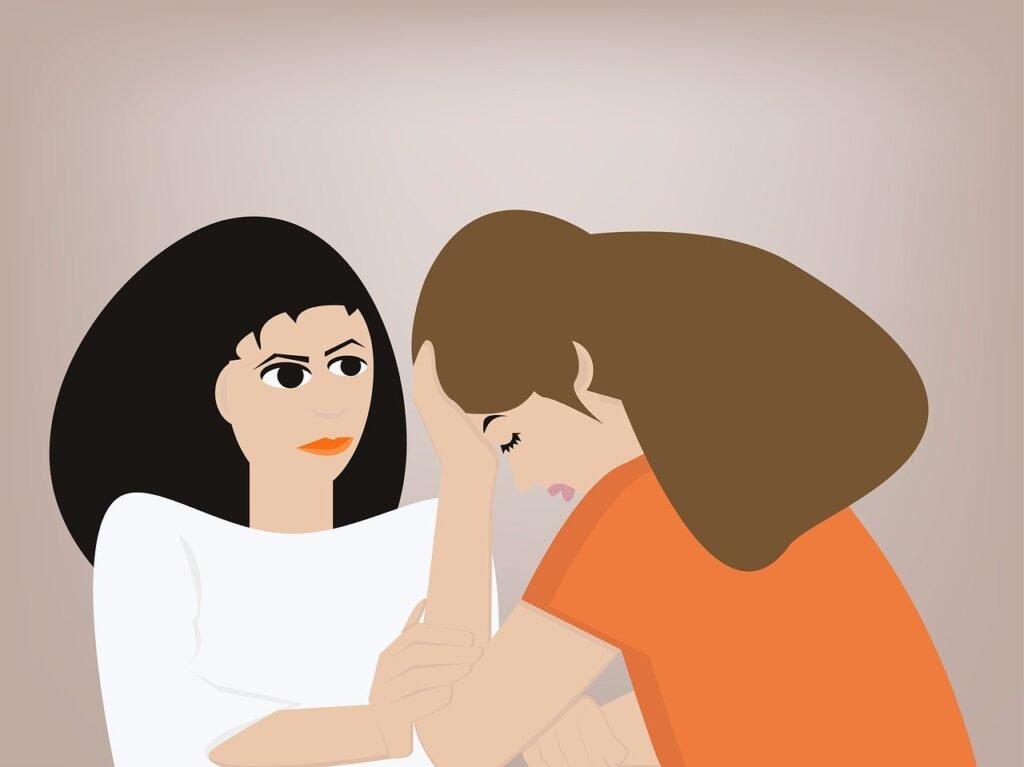You have a desire to make a difference and elevate the conversation surrounding mental health. You understand the importance of breaking the silence and creating a safe space for individuals to discuss their struggles. But how can you effectively raise awareness about mental health issues? This article will guide you through practical and impactful methods, providing you with the tools to initiate meaningful conversations, challenge stigma, and ultimately make a positive impact on those around you.
Understanding Mental Health Issues
Defining mental health
Understanding mental health begins with a clear definition of what it entails. Mental health refers to a person’s emotional, psychological, and social well-being. It affects how we think, feel, and act, and it plays a crucial role in our ability to handle stress, make choices, and maintain healthy relationships. Mental health is essential at every stage of life, from childhood and adolescence through adulthood.
Types of mental health issues
Mental health issues encompass a broad range of conditions that can affect individuals in various ways. Some common types of mental health issues include anxiety disorders, depression, bipolar disorder, schizophrenia, eating disorders, and personality disorders. Each condition has its own unique symptoms and impact on an individual’s mental well-being. It is essential to recognize that mental health issues can affect anyone, regardless of age, gender, race, or socioeconomic status.
Prevalence and impact
Mental health issues are more prevalent than many people realize, with millions of individuals affected worldwide. According to the World Health Organization (WHO), around one in four people will experience a mental health issue at some point in their lives. The impact of these conditions can be significant, not only on the individuals directly affected but also on their families, friends, and communities. Mental health issues can lead to challenges in various areas, such as work, relationships, and overall quality of life.
The Importance of Raising Awareness
Reducing stigma and discrimination
Raising awareness about mental health issues is vital in combatting the stigma and discrimination often associated with these conditions. Stigma can prevent individuals from seeking help or openly discussing their struggles, leading to feelings of shame and isolation. By increasing understanding and empathy, we can create a more inclusive society that supports and empowers people to seek the help they need without fear of judgment or prejudice.
Encouraging early intervention
Raising awareness also plays a crucial role in promoting early intervention for mental health issues. Many conditions are more manageable when identified and addressed early on. By educating others about the signs and symptoms of mental health issues, we can encourage individuals to seek help sooner, leading to better outcomes and improved overall well-being.
Improving access to resources and support
Another significant aspect of raising awareness is ensuring that individuals have access to the necessary resources and support. Many people may be unaware of the available mental health services or struggle to navigate the complexities of finding appropriate care. By spreading awareness about these resources and advocating for improved access, we can help bridge the gap and ensure that individuals can easily find the support they need.

Educating Yourself
Learning about mental health
To effectively raise awareness about mental health issues, it is essential to educate yourself on the subject. Take the time to learn about different mental health conditions, their symptoms, and their impact on individuals’ lives. This knowledge will not only help you in your advocacy efforts but will also enable you to better support those around you who may be struggling.
Researching specific conditions
In addition to gaining a general understanding of mental health, consider researching specific conditions that resonate with your personal interests or affect someone you know. This deeper knowledge will allow you to provide accurate information and support when discussing these particular conditions with others. Remember to rely on credible sources and consult professionals if necessary.
Understanding treatment options
Part of educating yourself about mental health involves familiarizing yourself with the various treatment options available. This knowledge will help you provide informed guidance and support to individuals in need. Understanding the benefits of therapy, medication, support groups, and lifestyle changes can empower you to help others navigate the path to mental wellness.
Starting Conversations
Promoting open dialogue
Starting conversations about mental health is crucial in creating a supportive environment. Encourage open dialogue by initiating discussions and being willing to listen and share your own experiences. By normalizing conversations around mental health, we can break down barriers and help others feel comfortable discussing their struggles without fear of judgment.
Creating a safe environment
When starting conversations about mental health, it is essential to create a safe and non-judgmental environment. Ensure that the person feels comfortable opening up by being empathetic, patient, and non-critical. Avoid jumping to conclusions or offering unsolicited advice. Instead, validate their experiences and provide a space for them to express themselves freely.
Actively listening to others
To effectively engage in conversations about mental health, it is crucial to practice active listening. This means giving your full attention to the person speaking, showing empathy, and refraining from interrupting or dismissing their feelings. Active listening allows the individual to feel heard and supported, fostering a deeper connection and facilitating genuine understanding.

Sharing Personal Stories
Breaking the silence
Sharing personal stories can be a powerful tool in raising awareness about mental health issues. By breaking the silence and openly discussing our own experiences, we can help reduce the stigma surrounding mental health. When others see that individuals they admire or respect have faced similar challenges, it can encourage them to seek help and share their own stories.
Empowering others to share
Alongside sharing your own story, it is essential to empower others to do the same. Encourage individuals to speak up and share their experiences by creating a safe and accepting space for them to do so. Whether through personal conversations, support groups, or community events, empowering others to share their stories helps create a sense of belonging and validates their journeys.
Highlighting diverse experiences
When sharing personal stories, it is vital to highlight the diversity of experiences within the realm of mental health. Mental health issues affect individuals from all walks of life, and each person’s experience is unique. By showcasing a range of stories, we can foster inclusivity and help others understand that mental health issues do not discriminate and can affect anyone.
Utilizing Social Media
Creating informative content
In today’s digital age, utilizing social media platforms can be an effective way to raise awareness about mental health issues. Create informative content, such as articles, infographics, or videos, to educate your followers about different mental health conditions, symptoms, and available resources. Ensure your content is accurate, engaging, and easy to understand.
Sharing relevant resources
Social media provides an excellent platform for sharing relevant mental health resources. Curate and share information about helplines, support groups, therapy services, and other mental health resources that may benefit individuals seeking help. Remember to include details of organizations and professionals who can offer trusted advice and support.
Engaging with online communities
Participating in online mental health communities can be an impactful way to raise awareness and provide support. Engage with discussions, offer insights, and share your experiences in these communities. By fostering connections and providing encouragement, you can help individuals feel less alone and directly contribute to building a supportive online community.

Organizing Events and Campaigns
Hosting awareness campaigns
Organizing awareness campaigns can have a substantial impact on raising awareness about mental health issues. Consider hosting events or campaigns that focus on different mental health conditions, provide education, and celebrate stories of resilience and recovery. Collaborate with local organizations, healthcare providers, and community members to maximize the reach and impact of your campaigns.
Arranging workshops and seminars
Workshops and seminars provide an opportunity to dive deeper into specific mental health topics and facilitate meaningful discussions. Collaborate with mental health professionals, educators, and community leaders to organize workshops or seminars that cover various aspects of mental health. Aim to provide attendees with valuable insights, practical tools, and actionable steps to support their mental well-being.
Participating in mental health initiatives
Get involved in existing mental health initiatives to amplify their impact and raise awareness. Join local or national mental health organizations and participate in their fundraising events, awareness walks, or advocacy campaigns. By pooling resources and working together, we can create a more powerful and widespread movement for mental health.
Collaborating with Organizations
Partnering with mental health organizations
Collaborating with established mental health organizations can significantly enhance your awareness-raising efforts. Partnering with organizations experienced in advocating for mental health can provide valuable guidance, resources, and networks. By working together, you can amplify your impact and reach a broader audience with your message.
Supporting fundraising efforts
Fundraising is a crucial aspect of supporting mental health organizations and their initiatives. Research and participate in fundraising activities where proceeds go toward mental health research, treatment programs, or support services. Utilize your networks and social media platforms to spread the word, encouraging others to contribute to these important causes.
Joining advocacy groups
Advocacy groups play a vital role in advancing mental health initiatives and policies. Joining or supporting these groups allows you to participate in advocacy efforts that influence decision-making processes, healthcare policies, and legislation. By uniting with like-minded individuals and collectively voicing your concerns, you can drive positive change in the mental health landscape.

Engaging Schools and Workplaces
Promoting mental health programs
Engaging with schools and workplaces is crucial in promoting mental health programs and initiatives. Advocate for the implementation of comprehensive mental health programs that prioritize preventative measures, early intervention, and support services. Encourage schools and workplaces to create environments that prioritize mental well-being and provide resources for students, employees, and their families.
Training staff and educators
Offering training programs for staff and educators equips them with the knowledge and skills to identify and respond to mental health concerns effectively. Support initiatives that provide training on topics such as mental health first aid, suicide prevention, and creating mentally healthy environments. Continuous education and professional development ensure that teachers, administrators, and employers can provide appropriate support and referrals to those in need.
Encouraging open discussions
Promote open discussions about mental health within schools and workplaces. Encourage employees, students, and colleagues to share their thoughts, experiences, and concerns openly. Establish a culture of trust and empathy, where seeking help is encouraged and stigma is actively challenged. Open discussions create an inclusive environment that prioritizes mental well-being and fosters a sense of belonging.
Taking Care of Yourself
Managing your own mental health
While raising awareness and supporting others, it is crucial to prioritize your own mental health. Engage in self-reflection, practice self-care, and be mindful of your own boundaries and limitations. Seek support when needed, whether through therapy, support groups, or trusted friends and family. By taking care of yourself, you can continue to make a positive impact on the mental well-being of others.
Practicing self-care
Self-care is a fundamental aspect of maintaining good mental health. Engage in activities and practices that rejuvenate and replenish your energy. This can include exercise, mindfulness techniques, hobbies, or spending quality time with loved ones. Remember that self-care looks different for everyone, so find what works best for you and prioritize it in your daily life.
Seeking support when needed
Nobody is immune to mental health challenges, and seeking support is a sign of strength, not weakness. If you find yourself struggling with your mental health, reach out to a mental health professional or a trusted support network. Remember that you don’t have to face your challenges alone, and seeking help is a courageous step toward healing and thriving.
In conclusion, raising awareness about mental health issues is a collective effort that requires education, empathy, and action. By understanding mental health, starting conversations, sharing personal stories, utilizing social media, organizing events, collaborating with organizations, engaging schools and workplaces, and taking care of ourselves, we can make a significant impact on the well-being of individuals worldwide. Together, we can break the silence, reduce stigma, and create a more supportive and inclusive society for all.

